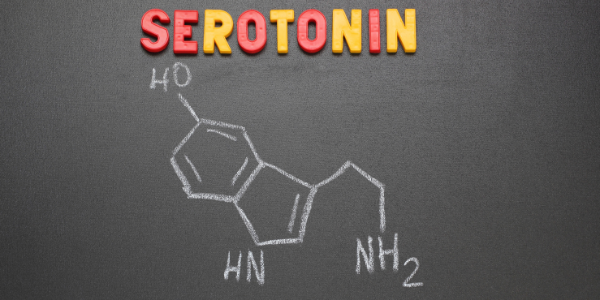 Back in the 1960s, a theory – or to be more accurate – a hypothesis was proposed that low levels of brain serotonin were a cause of depression. Serotonin after all, is a key brain neurotransmitter which purportedly plays a role in the regulation of mood – one of its many regulatory roles. This was but one of several hypotheses put forth as a possible cause of depression. This theory really caught on, and has served as a driving force for decades now as a justification for the use of antidepressants.
Back in the 1960s, a theory – or to be more accurate – a hypothesis was proposed that low levels of brain serotonin were a cause of depression. Serotonin after all, is a key brain neurotransmitter which purportedly plays a role in the regulation of mood – one of its many regulatory roles. This was but one of several hypotheses put forth as a possible cause of depression. This theory really caught on, and has served as a driving force for decades now as a justification for the use of antidepressants.
Prior to the release of the selective serotonin reuptake inhibitor (SSRI) antidepressants beginning in the late 1980s with the release of Prozac to the U.S. drug market, the general public knew little about the alleged role of serotonin in depression, but with the coming of these newer agents, the “serotonin hypothesis” then took center stage and became widely publicized. Recent surveys indicate that 80 percent of the general public believes in the theory that depression is caused by a “chemical imbalance” in their brains and that it’s linked to low serotonin levels. Many doctors, particularly in primary care, reinforce this notion and drug- company marketing adds even more amplification via television and print ads.
A recent study, however, published online July 20 in Molecular Psychiatry upends the notion that low serotonin levels are the primary cause of depression. The researchers found no consistent evidence that there is even an interconnection between serotonin and depression, and additionally, there is no support for the decades-long hypothesis that diminished serotonin concentrations are responsible for depression in any measurable way. This important study confirms that the messaging regarding depression from a “chemical deficiency” perspective has been all wrong for years, and that in the interest of complete honesty and transparency, we tell our clients that antidepressants likely have some role in ameliorating some depressive symptoms, but are very unlikely to provide a solution to their woes.
I have grappled with the idea that depression can be pinpointed to a single chemical, or chemicals for years on end, in that depression is a confusing, complex, cognitive-emotional- behavioral state which unfortunately remains poorly understood from a pathogenic perspective, and that our time is better spent on helping clients change the circumstances that lead to depression – stressful life events, relationship issues, violence, inflation, poverty – rather than trying to solve the chemical equation of this disorder.
However, an absence of a greater understanding of the underlying mechanisms of depression should not lead us to misinterpret the above-mentioned study and conclude that antidepressant prescribing should be either curtailed or heaven forbid, stopped. Because it is also true that for some 75 years now, millions of people have reaped the benefits of antidepressants which target the serotonin system. Serotonergic effects can help with depression, but the overarching point here is that we became too constrained and boxed in by this significantly singular focus on a neurotransmitter deficiency as the culprit.
A final point: We absolutely need more efficacious pharmacological treatments for depression – no matter how it’s defined or how it manifests.
Attribution Statement:
Joe Wegmann is a licensed pharmacist & clinical social worker has presented psychopharmacology seminars to over 10,000 healthcare professionals in 46 states, and maintains an active psychotherapy practice specializing in the treatment of depression and anxiety. He is the author of Psychopharmacology: Straight Talk on Mental Health Medications, published by PESI, Inc.
To learn more about Joe’s programs, visit the Programs section of this website or contribute a question for Joe to answer in a future article: joe@thepharmatherapist.com.